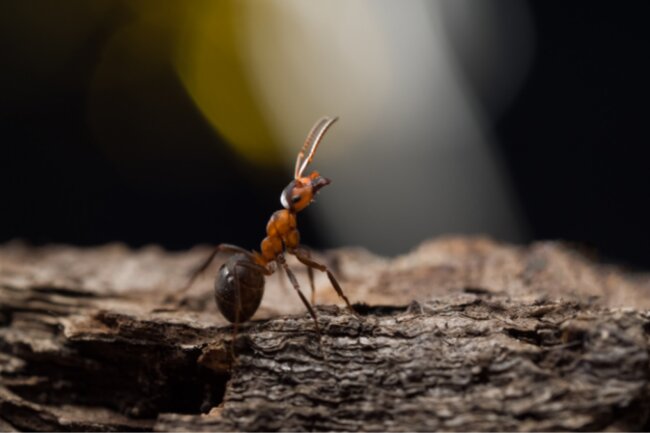Many ants practice necrophoresis, which is where they remove the dead from their nest in order to avoid the spread of disease within the colony.
Contents
Do ants bury their dead?

Within an ant colony, workers have a set of different tasks they complete to keep life within the nest ticking along. What task they complete varies somewhat on their age and what needs the colony currently has.
| Ant Species | Description |
|---|---|
| Atta ants | Leafcutter ants known for burying their dead |
| Pogonomyrmex ants | Harvester ants that exhibit burial behavior |
| Formica ants | Some species of Formica ants are known to bury their dead |
Taking care of larvae and eggs
This is an important role, ensuring that the future workforce, queens and drones are well fed and kept free of any dirt and disease.
Foraging for food
Foraging for food can mean different things depending on the species. Some ants hunt other insects, whereas others go out to collect grains and other plant matter. Some ants are even farmers, looking after other animals such as caterpillars and aphids to collect honeydew from them to consume.
Within leaf cutter ants nests, they will collect leaves to feed to the fungus that they cultivate within the nest and feed on.
Also read: Wondering “What do Ants Eat?” – FAQ
Building and repairing the nest
Nest maintenance is very important, and an ant’s nest is constantly changing and being altered. They may need to expand the chambers within the nest, repair damage caused by a predator, or even make alterations based on the external temperatures.
Defending the nest

Defending the nest is probably one of the most dangerous jobs. If any animal comes near the nest, ants will swarm out, biting the predator to get them to abandon their attack.
Cleaning the nest
Cleaning the nest is a significant job to ensure that the nest environment stays healthy and disease doesn’t spread over time.
While these aren’t the only jobs an ant worker may complete, they are some of the most significant. In general, ants will work inside the nest at a younger age and move outside when they are old. This is because jobs outside the nest are more dangerous, and the ants are more likely to die.
Ant undertakers
In many ant colonies, they appear to have ant undertakers. These are ants that remove dead bodies from the nest and place them on a midden, a pile of rubbish outside the nest. These undertakers often remain a little separate from the other ant species, spending their time near the entrance of the nest rather than in the nest.
The reason for having separate undertakes may be to reduce the risk of disease spread, though occasionally non-undertaker ants will also remove the dead. As well as placing their ants on a midden, ants will also sometimes place them within a chamber of the nest designated for the dead.
Also read: Do Ants Sleep? How, When, Where… Explained
Why do ants remove their dead?

Necrophoresis, the removal of dead individuals from a nest or hive, is practised by many eusocial insect species such as wasps and bees. It is important to prevent the spread of disease within the colony. It is thought one of the reasons why older bees do the pollen collection within a hive is because they can die away from the hive.
| Reason | Description |
|---|---|
| Hygiene and disease prevention | Burying dead ants helps reduce the spread of pathogens and diseases |
| Removal of chemical cues | Burying dead ants removes the scent trails that could attract predators or disrupt foraging activities |
| Waste management | Burial helps maintain cleanliness within the nest |
| Nutrient recycling | Decomposing ants provide a nutrient source for the colony and the ecosystem |
Read also: Do Bees Eat Pollen? What & How Often do They Actually Eat?
How do ants know to remove their dead?
The dead bodies of the ants release a scent, which tells the other ants they have died. This scent also warns the ants of danger if the deceased has died from an attack.
Also read: How do Ants Communicate? (Different Ways & Situations)
Burial
Burial of dead bodies is less common within insects, as disposing of them away from the hive or nest is enough to ensure the disease will not spread. Burial is more time-consuming and adds little benefit.
There may be some benefits from the fact that a buried body is less able to release airborne pathogens, and does not indicate to predators the presence of a nest. Termites have been found to bury their dead, as do some ant species, though it is less common than simple disposal.
The practicalities of death
It’s easy to ascribe human emotions to animals when they are carrying out a task that to humans carries out a great deal of significance. It may appear to us that ants are burying their dead in a type of graveyard, but they are in fact simply taking out the rubbish in order to keep their nest as clean and hygienic as possible.

